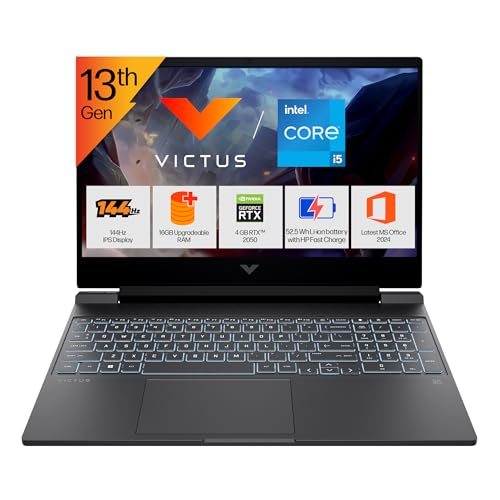
Key Considerations for Media Studies Students
When selecting a laptop for media studies, students must prioritize several essential features and specifications tailored to their unique needs. A powerful processor is paramount, as it directly influences the laptop’s performance, especially during resource-intensive tasks like video editing and 3D graphics rendering. Ideally, students should look for modern multi-core processors that can handle simultaneous applications and processes without lag.
Alongside a capable processor, sufficient RAM is critical for smooth multitasking and efficient handling of large media files. A minimum of 16 GB of RAM is recommended for students engaged in demanding projects, such as those involving heavy editing software or multiple applications running at once. This capacity ensures a seamless workflow, allowing students to focus more on their creativity rather than technical limitations.
High-quality graphics capabilities cannot be overlooked, particularly for those involved in media studies with a focus on game development or graphic-heavy projects. A dedicated graphics card will significantly enhance rendering speed and overall visual output, facilitating a better user experience when working with intricate designs, high definition video, or 3D models.
Moreover, display quality plays a critical role in a media studies laptop. Students should opt for a device featuring a high-resolution display with accurate color reproduction, as this is vital for tasks that demand visual fidelity, such as editing photos and videos. Furthermore, the portability of the laptop should also be considered, given that many students will be working on projects in various locations such as classrooms or libraries. A lightweight design with a long battery life ensures that students remain productive without being tethered to a power outlet.
In choosing a laptop that aligns with these specifications, students will be better equipped to tackle their media studies curriculum efficiently and effectively.
Top Features for Graphic Design and VFX
For students and professionals alike in the realm of graphic design and visual effects (VFX), choosing the right laptop is crucial to achieving high-quality results. One of the foremost features to consider is a high-resolution display. A laptop equipped with an outstanding display, preferably 4K or at least Full HD, allows for precise color representation and fine-detail work. Accurate color reproduction is essential for tasks such as photo editing, video production, and graphic creation, making it imperative for professionals in the creative industry.
Additionally, a strong graphics processing unit (GPU) is vital for fluidly rendering graphics and handling intricate visual tasks. A dedicated graphics card, as opposed to integrated graphics, means enhanced performance in applications like Adobe Photoshop, Illustrator, and After Effects, enabling smoother transitions and efficient rendering of complex projects. Therefore, it is advisable to explore laptops that come with robust GPUs from well-known manufacturers, such as NVIDIA or AMD, which are tailored for creative professionals.
Besides the GPU and display, an SSD (solid-state drive) is highly recommended to ensure faster loading times and overall improved performance. SSDs significantly reduce the lag associated with traditional hard drives, making the workflow smoother, especially when working on larger files or multitasking with multiple applications. This feature is particularly beneficial when conducting graphic-intensive tasks or when using heavy software.
Lastly, ensuring that the laptop is compatible with the necessary design and editing software is crucial. Most graphic design applications have specific system requirements, so evaluating these requirements beforehand can be beneficial. A laptop that meets or exceeds these specifications will ensure that students can effectively utilize the latest tools for their projects, greatly enhancing their learning experience in media studies.
Recommended Laptops for Game Development and Media Production
When selecting a laptop for media studies, particularly for game development and media production, it is essential to consider not only performance but also value for money. Below are some highly recommended laptops that strike a balance between these critical factors, catering to various needs within the media studies realm.
1. Apple MacBook Pro 16-inch (M1 Pro)
The MacBook Pro is revered for its robust performance, particularly among graphic designers and video editors. Equipped with the M1 Pro chip, this model features up to 32GB of unified memory and up to 8TB of SSD storage, ensuring seamless multitasking and efficient rendering. The vibrant Liquid Retina XDR display enhances visual projects significantly. However, the high entry cost may deter budget-conscious students.
2. Dell XPS 15
The Dell XPS 15 is an excellent choice for both game developers and media producers. With its Intel Core i7 processor, NVIDIA GeForce GTX 1650 Ti graphics, and up to 64GB of RAM, it offers ample power for demanding tasks. The 15.6-inch InfinityEdge display is perfect for creative work, providing stunning clarity. While it is priced competitively for its specifications, its weight may not be ideal for frequent travel.
3. ASUS ROG Zephyrus G14
Tailored for game developers, the ASUS ROG Zephyrus G14 boasts a powerful AMD Ryzen 9 processor and NVIDIA GeForce RTX 3060 graphics card. It is compact, lightweight, and features a 14-inch Full HD display, making it perfect for on-the-go professionals. The drawbacks include its limited upgrade options and battery life under intensive workloads.
4. Lenovo ThinkPad X1 Carbon Gen 9
For students focused on multimedia projects and collaborative work, the Lenovo ThinkPad X1 Carbon Gen 9 is a superb option. Its Intel Core i7 processor and 16GB of RAM make it efficient for various media tasks. The impressive keyboard and durability are notable strengths, although its integrated graphics can be limiting for graphics-heavy applications.
In navigating the intricate landscape of media studies, these recommended laptops present valuable options that cater to the diverse needs of students, ensuring they are well-equipped for both game development and media production projects.
Conclusion: Making the Right Choice for Academic Success
Choosing the best laptop for media studies is a significant decision that impacts not only your academic performance but also your future career prospects. Throughout this guide, we have explored essential features, such as processing power, storage capacity, display quality, and portability, which are crucial for media students who require robust machines to manage various software applications effectively. The evolution of media studies necessitates that students possess laptops capable of handling intensive tasks, including video editing, graphic design, and sound production.
Budgeting for a laptop can be daunting, but it is important to prioritize quality and performance over price alone. Investing in a reliable machine may require an initial higher expenditure, but the benefits include enhanced productivity, better performance, and longevity, all of which are critical for maintaining an edge in this competitive field. When considering your options, it is wise to assess your specific needs and the type of media projects that you will undertake during your studies. This targeted approach will ensure that your laptop can support both current coursework and future endeavors.
Moreover, considering the fast-paced technological advancements in media studies, selecting a laptop with future-proof specifications is paramount. Look for machines with expandable storage and upgradeable RAM to facilitate accommodation of new software updates for the duration of your course. As you progress in your studies, the ability to adapt to evolving technological needs will greatly influence your success.
In conclusion, investing the time to research and make an informed decision regarding your laptop choice is crucial for academic success in media studies. By balancing quality, functionality, and budget, you can ensure a beneficial investment that will serve you well throughout your academic journey and into your professional career.







